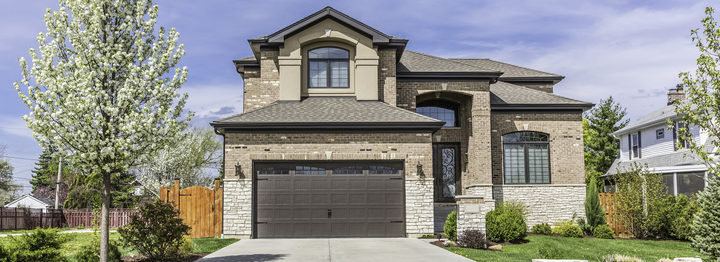
Buying a home is an exciting journey, and one that you’ll get to pursue once you reach a few important financial milestones—including saving up enough for a down payment, and budgeting for the monthly expenses of home ownership. However, when shopping for a new home in Katy, Texas, you might be surprised to find out there are peripheral, secondary, and additional expenses you’ll need to face to finalize your home purchase.
None of these expenses has the power to compromise your ability to buy a home, but they could jeopardize your financial plan, or make it harder for you to achieve your other financial goals. If you’re prepared for them, you can make plans to deal with them effectively.
These are some of the most important extra expenses to consider:
1. Home inspections. Home inspections are one of the most important steps you can take before finalizing your purchase of a property. It’s possible to skip one, but it’s not advisable; home inspections are there to help you ensure that the property is in good condition, including details that are easy to overlook. If you seek a qualified home inspector, you can expect to pay somewhere around $300. This number may be higher or lower depending on the size and complexity of the property, and depending on the features involved in the inspection. This isn’t expensive, but it can add up with your other unexpected expenses.
2. Closing costs. “Closing costs” can actually be made up of several individual fees, but they’ll all be bundled together when you close on your mortgage. For example, you might be responsible for mortgage taxes, lender application fees, title insurance, recording fees, and attorney’s fees, depending on which services you need. You may also need to pay real estate tax reimbursements if the person selling the home has already paid them upfront. Depending on your unique situation, you can expect to pay 2 to 5 percent of the home’s purchase price.
3. Extra loan fees. You may also be responsible for paying a loan origination fee, or other fees related to your loan. Your lender should disclose these fees well in advance, but they can take you by surprise if you’re not expecting them. If you can’t afford a sufficient down payment, you may also be responsible for paying private mortgage insurance (PMI), which can inflate your total monthly expenses and make it more difficult to pay for your home on a regular basis.
4. Last-minute repairs and upgrades. There may be some changes you want to make to the home before you move in. Between the closing of the sale and your move-in date, the house should be empty, and in ideal circumstances, clean. This makes it the best opportunity to paint, install new flooring, move in new furniture, or make major repairs. If there’s anything structurally wrong with the home, you should have the seller take care of it in advance (as a stipulation before closing). But there may be a handful of odds and ends that need your attention, even after these requirements are met. Regardless of whether you’re hiring a contractor or attempting to do the work yourself, you’ll likely end up needing to pay some money for these repairs. Costs vary tremendously based on property needs.
5. Property taxes. Any reimbursement of already dispensed property taxes will be rolled into your closing costs, but don’t forget you’ll be responsible for property taxes from here on out. Many mortgage calculators only show you the total you’ll owe on a monthly basis based on the principal and interest of your loan; if you’re in escrow, you’ll also pay a portion of your property taxes on a monthly basis. Property taxes vary wildly from state to state and area to area, so make sure you do your research in advance.
6. Most banks will also require you to pay for homeowner’s insurance; even if they don’t, it’s good to have it. If you’re in escrow, this will be rolled into your monthly payments as well. Again, homeowner’s insurance costs vary from property to property, depending on your area and the amount of risk your property faces. Try to get multiple quotes before you finalize a provider, and get a firm estimate before you work up a budget.
7. Ongoing maintenance. All homes suffer wear and tear over time, and if you want your home to remain in good condition, you’ll also need to conduct maintenance, like replacements, cleanings, and other miscellaneous repairs. Even if you take on all this work as a DIYer, it’s going to cost money for new filters, cleaning supplies, and other requirements. These costs can come as a surprise to a new homeowner who’s never faced them before, so try to budget conservatively.
There may be other expenses to consider as well. For example, depending on your circumstances, you’ll likely need to budget a few hundred to a few thousand dollars for moving expenses. Hiring a moving service can be expensive, but even if you plan to handle everything yourself, you’ll need to think about renting a moving truck, buying additional boxes, and handling fuel expenses.
You’ll be pleased to know you shouldn’t have to worry about paying for a real estate agent. Typically, home sellers pay for the fees of both the selling agent and the buying agent. Your buying agent exists solely for your benefit so that you can get the right home for you and your goals.
If you’re ready to start looking for a home in Katy, Texas, it’s a good idea to work with a real estate professional who can help you make the right choice—and prepare for all the unexpected turns your home purchase may take. Contact us at Green Residential today, and find out how we can help you on your home ownership journey.
